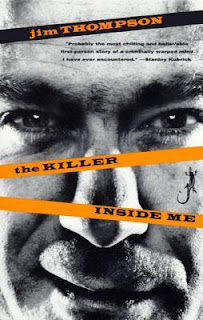(hb; 1979: non-fiction/true crime)
From the inside flap:
". . .[
Zebra] is the true account of five Black men who held a city in a 179-day grip of terror. Provoked and guided by their leaders, these men randomly selected for kidnap, rape, robbery, mutilation and murder, 23 victims from the streets of San Francisco -- any street, any time. Calling themselves Death Angels, they set a goal: to sacrifice nine 'blue-eyed devils' each, for their God, Allah.
"Using every avenue open to the research journalist (and some known only to the author himself) -- records, reports, witnesses, surviving victims, relations even the convicted men themselves, and the informer who risked a nightmare death to stop the killings -- Howard has probed as deeply into the minds of murderers as anyone is ever likely to go. He shows us frenzied men, killing in the name of a religion that is teaching them white hatred. And he takes us into the insecurities about color, their desire for respect, their burning ambition to rise above their status. He shows us killers as we have never seen them: caught in a clash of right and wrong, black and white, life and death. . ."
Review:
Subtitled "
The true account of the 179 days of terror in San Francisco", this is a riveting chronicle of five Black Muslim extremists who killed fifteen random people and attacked eight others in the Bay Area between the latter part of 1973 and early part of 1974. Their luck in eluding capture -- on par with that of the
Zodiac killer -- was incredible, considering the enormity of their criminal ignorance: incredible but horifically true.
Damn near impossible to put down, this. Worth owning, too.
[
Interesting side-note: the crimes, then-Chief of Police Donald M. Scott said in a 1973 press release, were not dubbed 'the Zebra killings' because of the black-on-white violence of the attacks. They were called this, Scott told the press, "[because] the Z-for-Zebra channel happened to be the only frequency available for exclusive use." (p. 241)]





